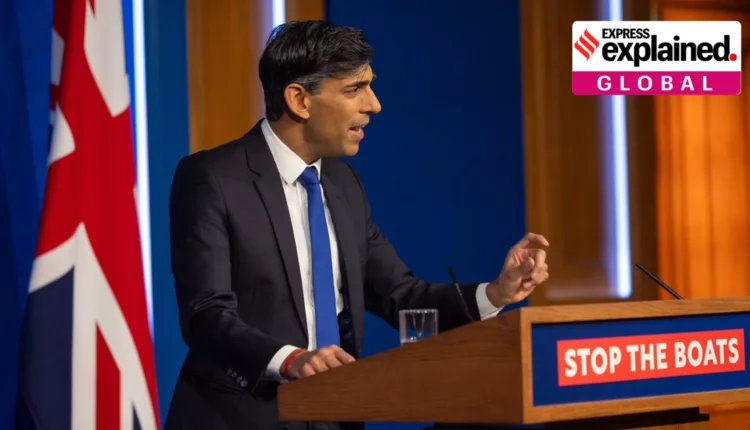
UK Bars Postgrad Students’ Family: Inside the New Policy Change
TL/DR –
The UK government has introduced stricter visa norms for international students, including a provision that prevents most foreign university students from bringing family members to the UK. This is part of measures announced last year to reduce legal migration to the UK, with net migration in 2023 up to June being 672,000, a decrease from 745,000 in 2022. The new rules also prevent students from switching from student to work visa routes before their studies are complete, with a five-point programme including raising the minimum salary for a Skilled Worker visa and introducing changes to the visas for healthcare and social care workers.
UK Toughens International Student Visa Norms
Rishi Sunak, UK Prime Minister, announced that, as of January 1, most foreign university students cannot bring family members to the UK. This new guideline is part of efforts initiated last year to reduce legal migration to the UK.
Last December, Home Secretary James Cleverly stated in Parliament that migration to the UK was excessively high and needed to be reduced. Data from the Office for National Statistics shows that the net migration was estimated to be 672,000 in June 2023, down from 745,000 in 2022. Nigerian nationals accounted for 54%, while Indian nationals accounted for 23% of all dependent visa holders in the UK in the same year.
Moreover, the new policy will prevent international students from switching to work visas before completing their studies. In the past, students were permitted to start working during their final semester under certain circumstances.
New Rule for Bringing Dependents to the UK
According to the 2023 Migration Advisory Committee (MAC) annual report, two main drivers of recent net migration increase are the growth of migrant workers in Health and Social Care and rising international student numbers. The government has announced a package of measures last May to reduce the number of student visas being issued.
Suella Braverman, the then Home Secretary stated, “Around 136,000 visas were granted to dependents [partners or children] of sponsored students in the year ending December 2022, a more than eight-fold increase from 16,000 in 2019.”
One of the government measures included removing the rights of international students to bring dependents unless they were on postgraduate research programmes. Lowering net migration has been a key part of the Rishi Sunak-led Conservative Party’s campaign. It was a core concern during the 2016 Brexit campaign, as exiting the EU would allow the UK to establish independent immigration guidelines.
Five-Point Immigration Curbs Program
The plan announced by James Cleverly in December 2023 includes:
- Preventing Social Care workers from bringing dependents on their visas.
- Raising the baseline salary for a Skilled Worker visa sponsorship from £26,200 to £38,700.
- Reducing the number of jobs where it is possible to sponsor overseas workers below the minimum salary.
- Increasing the minimum income required to sponsor a spouse/partner visa.
- Reviewing the Graduate visa system which allows overseas graduates of British universities to work in the UK for up to 3 years after completing their course.
Changes in Visa Policy for Health and Care Workers
The Health and Care sector now accounts for 63% of all entry Skilled Workers visas granted. However, there are also increasing reports of exploitation and abuse on this route. “We are concerned about this trend which could lead to increased shortages of healthcare staff in lower income countries,” states the report.
Indians form the largest group of Health and Care Worker visa holders, followed by Nigeria, the Philippines, Zimbabwe, Bangladesh and Pakistan.
Concerns About Dependents
The MAC report states that there is a fiscal cost to the UK when migrants bring dependent children with them, as local public services may struggle to adjust to the increase in population. However, it acknowledges the substantial public value that the health and social care sector provides.
Opposition Labour Party MP Yvette Cooper criticised the five-point plan but also spoke of the need for curbs and training of domestic workers.
—
Read More Health & Wellness News ; US News
